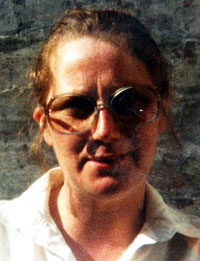6 May 2010 Edition
Still seeking justice for Nora McCabe

BY JIM McCABE
THE Belfast High Court last week declared that charges should have been considered against RUC officers involved in the killing of Belfast mother-of-three Nora McCabe in July 1981, during the Hunger Strike.
Nora’s husband, Jim, writes about why he took the case.
I WANT to thank your paper for the coverage concerning my recent legal challenge of the failure to the then Director of Public Prosecutions (DPP) in the North to hold to account those responsible for the killing of my wife, Nora McCabe, including the subsequent cover-up in which several RUC officers perjured themselves. This included the most senior RUC officer at the time, James Crutchley, who was subsequently promoted to an Assistant Chief Constable and decorated by the British monarch.
Whilst as a family we feel vindicated in that the judgment accepted that the DPP should have acted in regard to charges against RUC witnesses concerning perjury, I would nevertheless like to take this opportunity to respond to part of the judgment in terms of the lapse in time regarding my legal challenge as widely reported on which implies a period of inactivity on my part and that of my legal team.
I refute entirely any such notion.
I pursued the killing of Nora relentlessly and it is fair to say that the recent challenge was not a viable or realistic option open to me during the last two decades of political conflict in which a dark cloud existed over the political role played by the North’s criminal justice system.
It was only after landmark decisions within the European Court in May 2001 concerning killings of Northern citizens by the British state and the flawed investigative procedures applied that opportunity to retrospectively examine Nora’s and hundreds of similar killings became available. Ultimately, the test case challenge to any retrospective application emerging from Europe was ruled out in a case of blatant political decision-making at the House of Lords in the McKerr case.
Similarly one of the reasons given last week in my recent challenge was that to afford the reopening of Nora’s killing would be to open the system to ‘abuse of application’: in other words, facilitate for the first time in hundreds of state killings due process. This is a similar position to that adopted by the House of Lords in the McKerr test case.
Effectively, this part of the judgment is to close any opportunity post-conflict to scrutinise the role of the British state in controversial killings and the subsequent failings to hold to account those responsible. It equally fails to address the issues of impunity and its awful legacy.
However, if I were to accept the delay argument then might it somehow have something to do with the fact that the British state was responsible for murdering my lawyer, Pat Finucane?
During Nora’s inquest, Pat Finucane introduced into evidence a video-tape of Nora’s killing that had been recorded by a Canadian film crew visiting Belfast at the time and which conclusively proved that all RUC witnesses, including James Crutchley and the officer who fired the fatal shot, lied.
Despite this evidence, the coroner did not refer the case to the then DPP and the DPP also failed to reopen the case. This constituted a systemic cover-up.
All the RUC officers involved walked free.
On emerging from Crumlin Road Court, Pat Finucane famously said that if justice could not be delivered in the killing of Nora then it was inconceivable to see how it could be delivered in any case. How right he was.

Jim McCabe, husband of Nora, and Brenda Downes, wife of Seán – both killed by RUC plastic bullets
